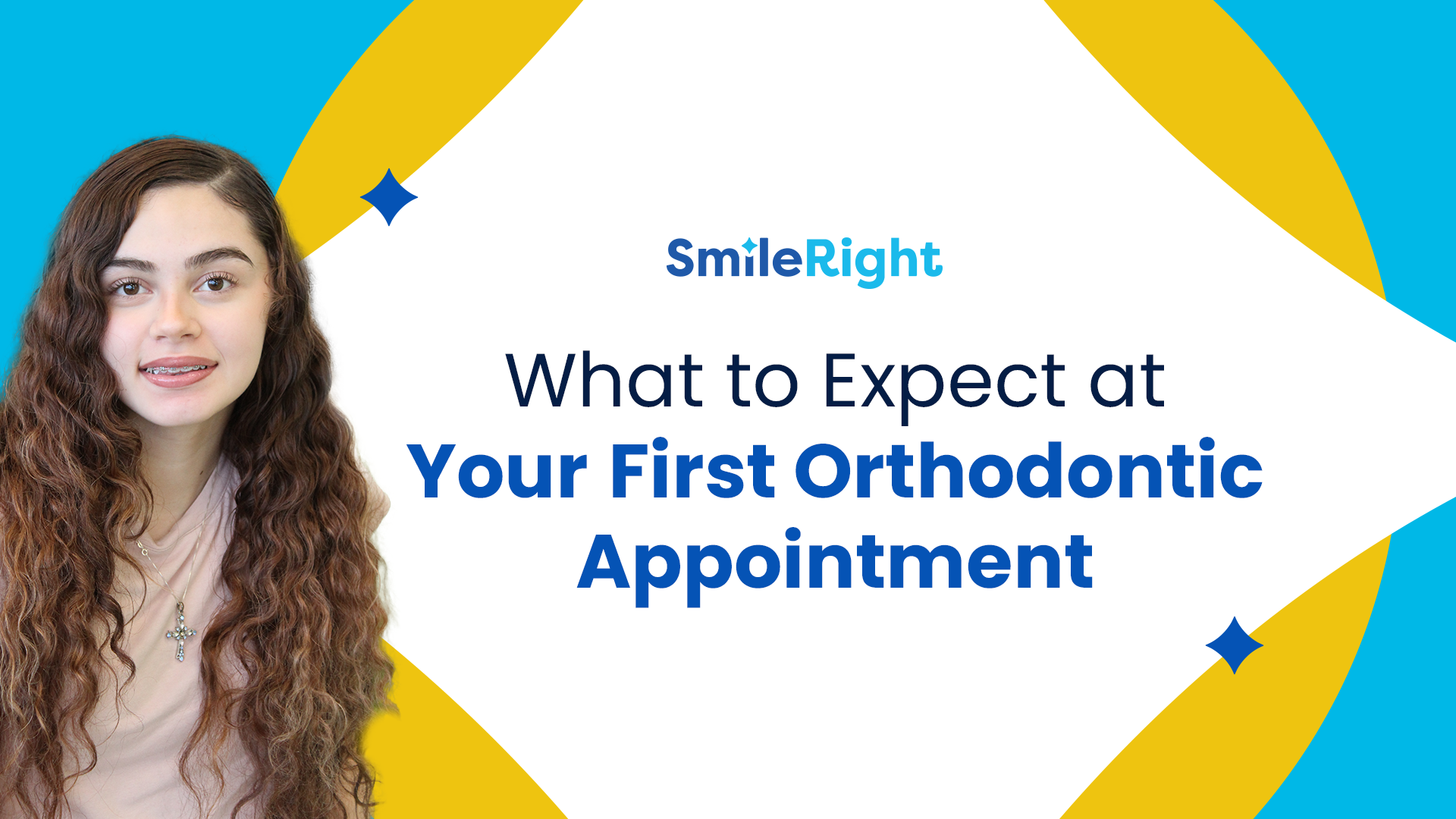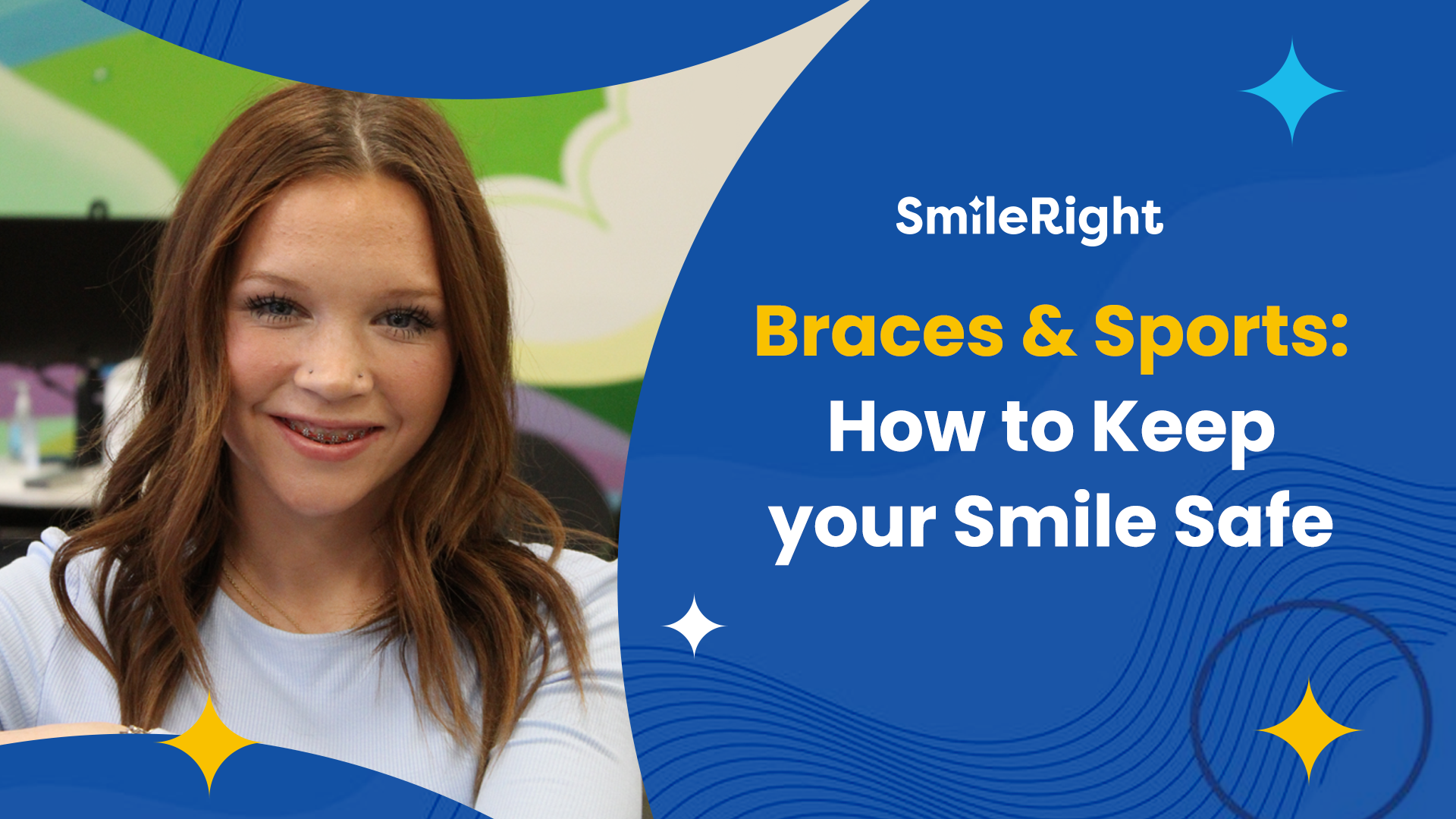How to Maintain a Clean and Healthy Smile During Treatment
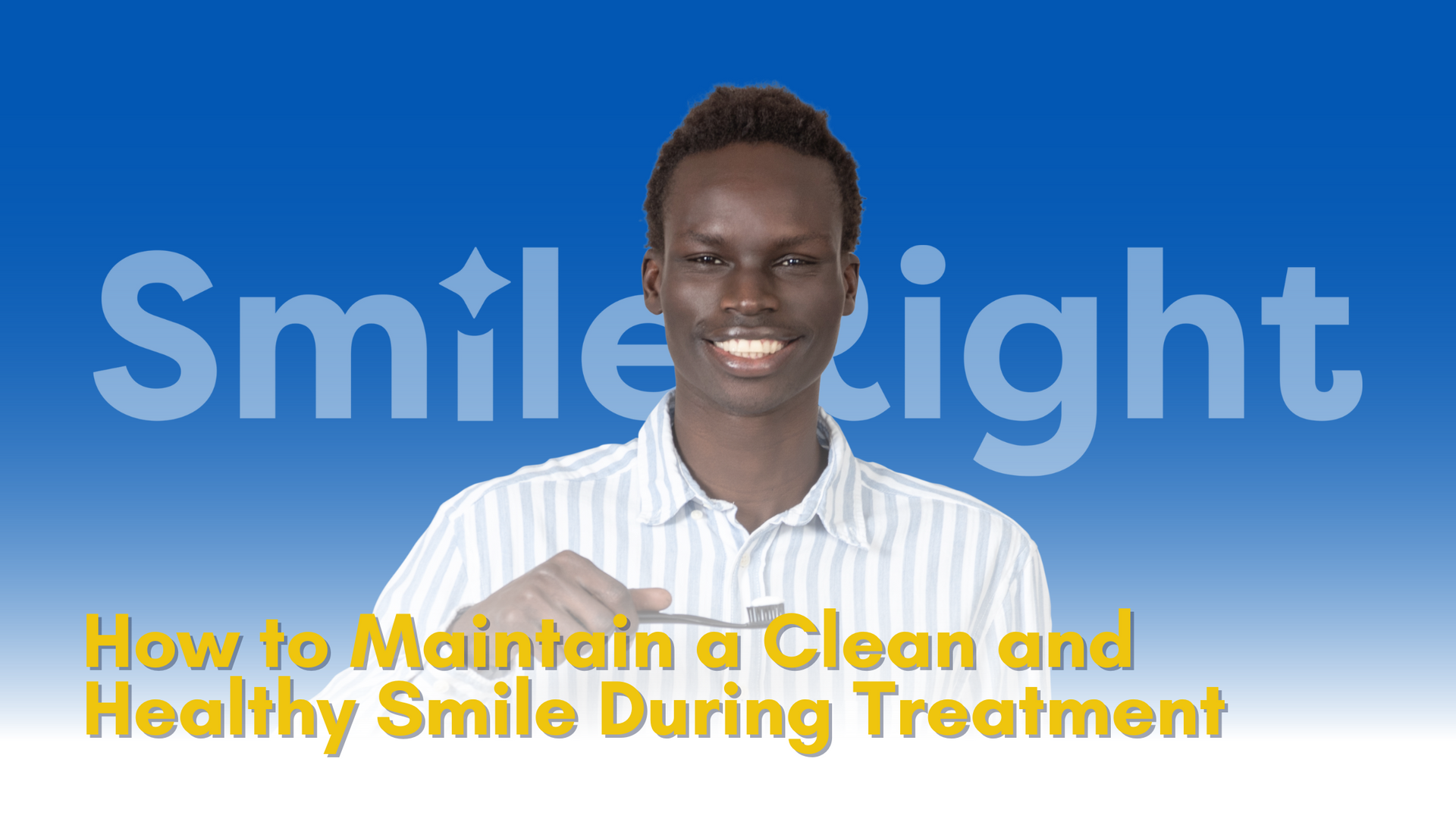
Source: Dr. Marketing
Wearing metal braces is a crucial step toward attaining a straighter, healthier smile; however, keeping your teeth and braces clean during this treatment requires extra attention. Without adequate hygiene, food particles and plaque can easily become trapped in the brackets and wires, which may lead to problems such as tooth decay, gum disease, and discoloration.
At SmileRight in Houston, we are committed to helping you maintain a clean and healthy smile throughout your orthodontic journey, as this is vital for achieving the best possible results. In this blog post, we will share practical tips on how to effectively brush, floss, and care for your braces to ensure optimal oral hygiene during your treatment.
Brushing with Metal Braces
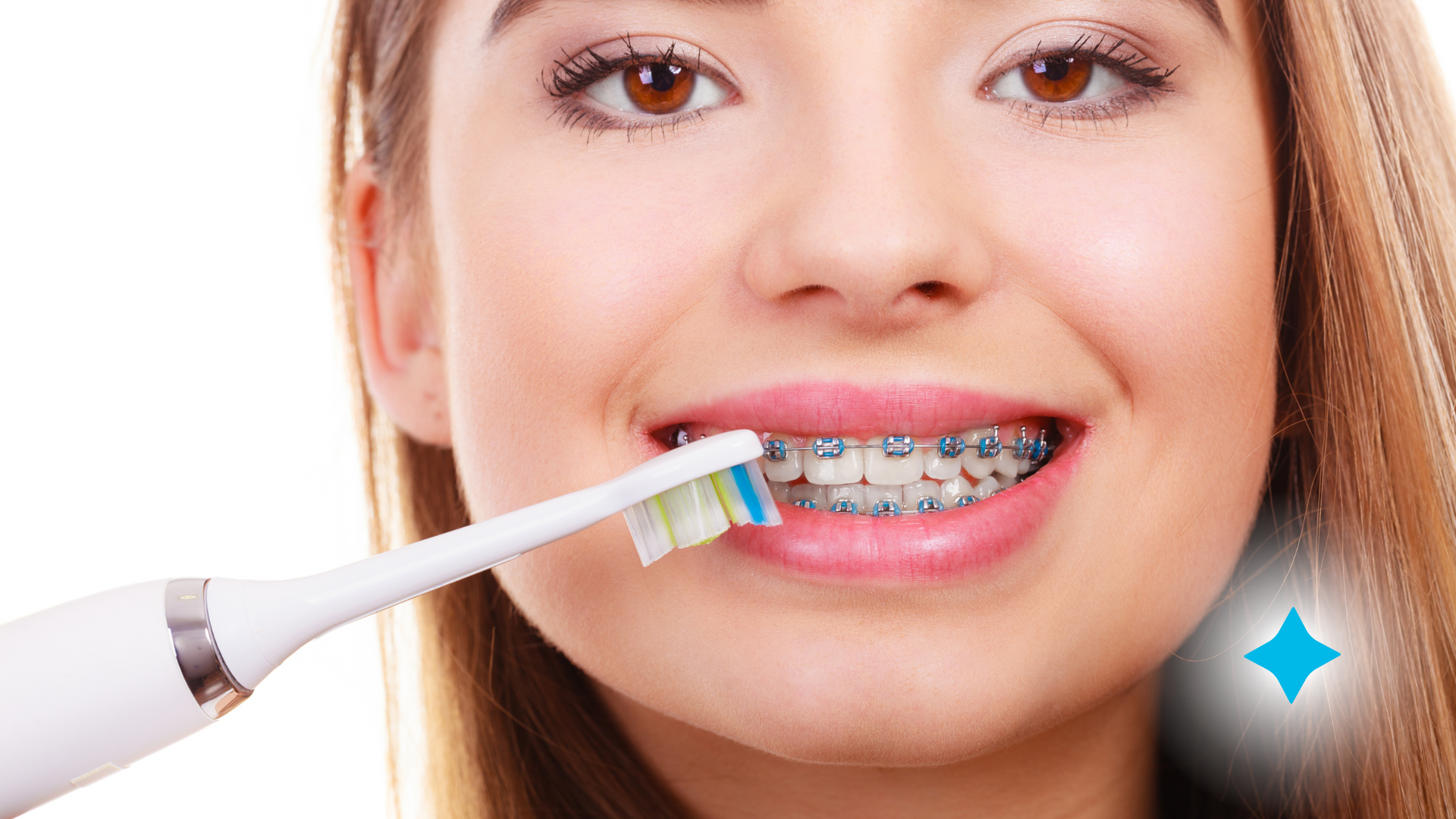
Brushing your teeth while wearing braces requires a little extra effort to ensure all areas around the brackets and wires are thoroughly cleaned. Plaque and food particles can easily build up around the hardware, making it essential to brush carefully and consistently.
Teeth Brushing Tips With Metal Braces
- Brush After Every Meal: While it is generally recommended to brush twice a day, it is ideal to brush after every meal when you have braces. This helps remove food particles that can become trapped in the brackets and wires. If brushing after every meal isn’t feasible, rinsing your mouth with water can help in the meantime.
- Use a Soft-Bristled Toothbrush: A soft-bristled toothbrush is gentle on your gums and helps you get into hard-to-reach areas. You can also opt for an orthodontic toothbrush with a special V-shaped design to clean around brackets more effectively.
- Brush for Two Minutes: Make sure you are brushing for at least two minutes, paying close attention to the gum line, around each bracket, and the chewing surfaces of your teeth.
- Angle Your Brush: Hold your toothbrush at a 45-degree angle to the gum line, and carefully brush above and below each bracket to ensure no food particles are left behind. You may need to tilt the brush at different angles to clean effectively around the wires.
- Consider an Electric Toothbrush: An electric toothbrush can be particularly helpful for people with braces. The vibrating or rotating bristles can remove plaque more efficiently than manual brushing, making it easier to maintain a clean smile.
Flossing with Metal Braces
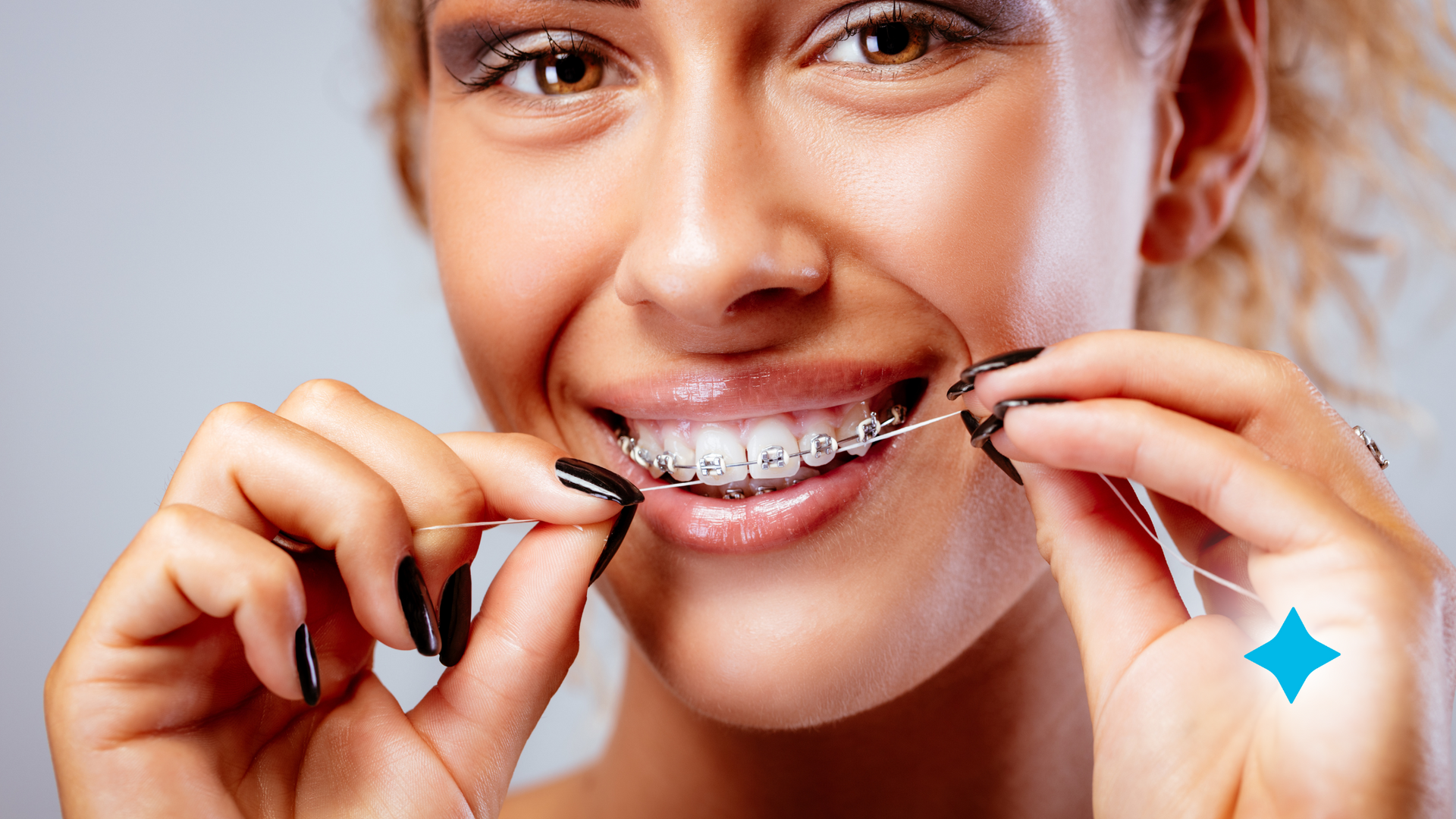
Flossing can be a little tricky when you have braces, but it’s just as important as brushing. Food and plaque can easily become trapped between your teeth, where your toothbrush can’t reach, making flossing a key part of your daily oral care routine.
Flossing Tips With Metal Braces
- Use a Floss Threader: A floss threader is a small, flexible tool that helps you guide floss between your teeth and under the wires of your braces. It’s simple to use and makes it much easier to floss with braces. You can use regular dental floss with a floss threader or buy pre-threaded floss designed for braces.
- Try Orthodontic Flossers: Orthodontic flossers are small, handheld devices that have a piece of floss attached to a pick. These flossers are designed specifically for braces and are convenient for getting into tight spaces around brackets and wires.
- Floss Daily: Make sure to floss at least once a day, ideally before bed, to remove plaque and food particles that can build up throughout the day. Flossing consistently will help prevent gum inflammation and cavities.
- Be Gentle: When flossing around your braces, it’s important to be gentle to avoid damaging the wires or irritating your gums. Guide the floss carefully between your teeth and around the brackets, taking your time to ensure thorough cleaning.
Rinsing with Mouthwash

Using an antibacterial mouthwash can help keep your mouth clean and fresh, especially if you are unable to brush immediately after a meal. Mouthwash can reach areas that brushing and flossing might miss, reducing the risk of plaque buildup and gum disease.
Rinsing Tips
- Use Fluoride Mouthwash: A fluoride mouthwash helps strengthen your enamel and protect your teeth from cavities, which is especially important when wearing braces. Look for a mouthwash with fluoride to boost your oral hygiene routine.
- Rinse After Brushing: Swishing with mouthwash after brushing and flossing helps remove any remaining debris and leaves your mouth feeling clean and fresh. Be sure to follow the directions on the label, typically swishing for about 30 seconds.
Avoiding Foods That Can Damage Braces

Maintaining a healthy smile during braces treatment goes beyond just brushing and flossing. It is also important to be mindful of what you eat. Certain foods can damage your braces, which can slow down your treatment and lead to additional trips to the orthodontist for repairs.
Foods to Avoid While Wearing Metal Braces
- Sticky Foods: Avoid foods like chewing gum, caramels, and taffy, as they can stick to your brackets and wires, making them difficult to clean and increasing the risk of damaging your braces.
- Hard Foods: Hard foods like popcorn, nuts, hard candies, and ice can break or dislodge your brackets and wires. Be cautious when eating crunchy snacks, and consider cutting harder fruits and vegetables (like apples and carrots) into smaller, bite-sized pieces.
- Sugary Foods and Drinks: Limit sugary snacks and beverages, such as candy, soda, and fruit juices. Sugar can lead to plaque buildup, cavities, and tooth decay, especially around the brackets, where it’s harder to clean.
By avoiding foods that can harm your braces, you’ll reduce the risk of setbacks and keep your treatment on track.
Protecting Your Braces During Sports

If you participate in sports, whether it is basketball, soccer, or any other activity that involves physical contact, it is crucial to protect your braces and teeth from potential injury. One of the most effective ways to achieve this is by wearing a mouthguard. A mouthguard acts as a protective cushion that absorbs shocks and distributes the force from any impact, helping to prevent damage to your braces, teeth, and gums. By using a mouthguard, you not only safeguard your dental work but also ensure that your overall oral health remains intact while you enjoy your favorite sports.
Attending Regular Orthodontic Appointments
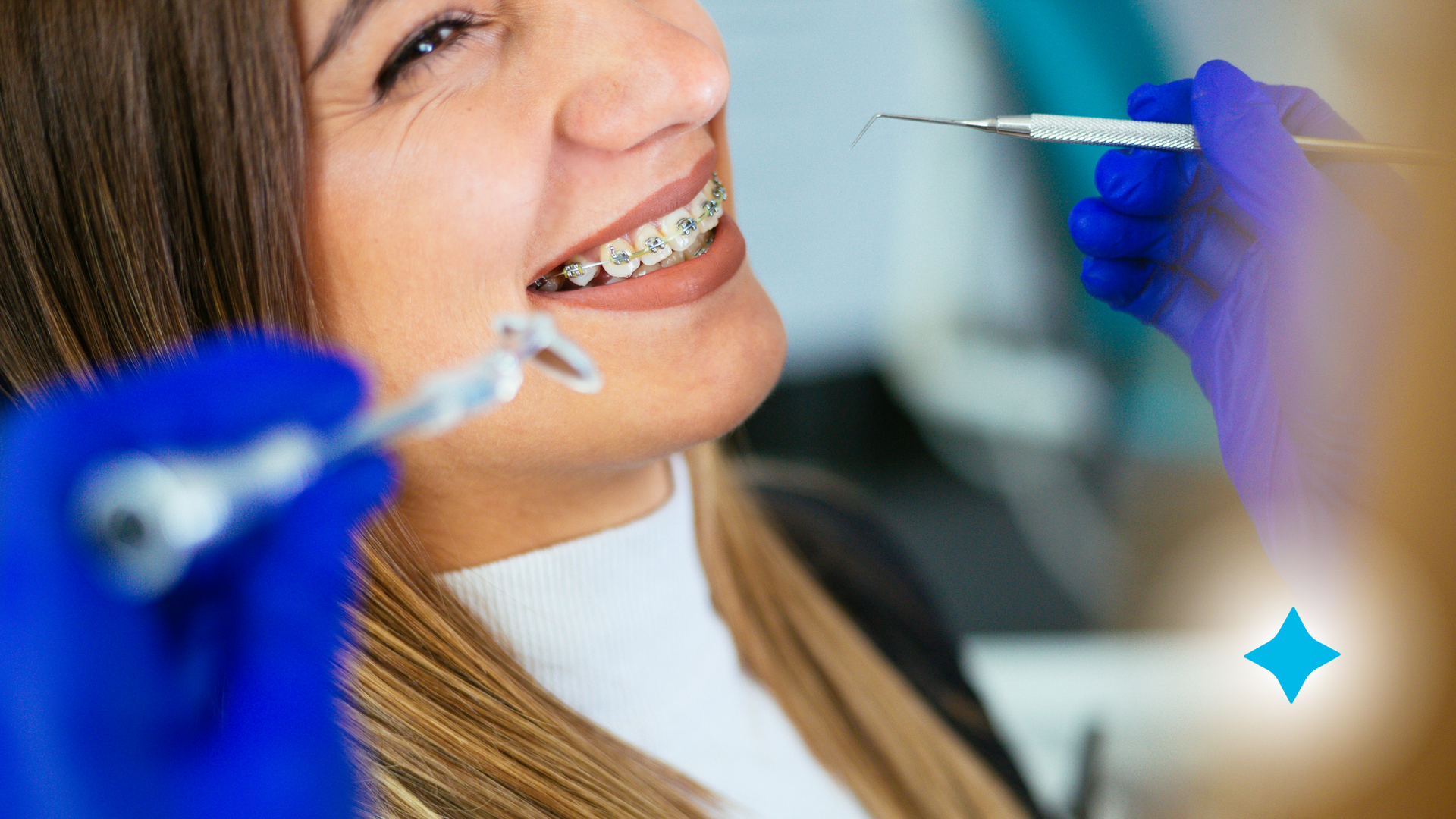
Regular checkups with our orthodontist are key to ensuring your braces are working effectively. These visits allow your orthodontist to adjust the wires, check the progress of your treatment, and ensure that your teeth are moving as expected.
Why Orthodontic Appointments Are Important
- Adjustments: During your appointment, our orthodontist at SmileRight will adjust your braces to keep the pressure consistent on your teeth. This ensures that your teeth are moving toward their correct positions.
- Monitoring Oral Health: Our orthodontist will also check for any issues, such as tooth decay or gum disease, that could impact your treatment. Regular appointments allow for early detection of potential problems, helping you maintain a healthy smile.
- Stay on Track: Consistently attending your appointments ensures that your treatment stays on track and avoids unnecessary delays.
A Healthy Smile with Braces
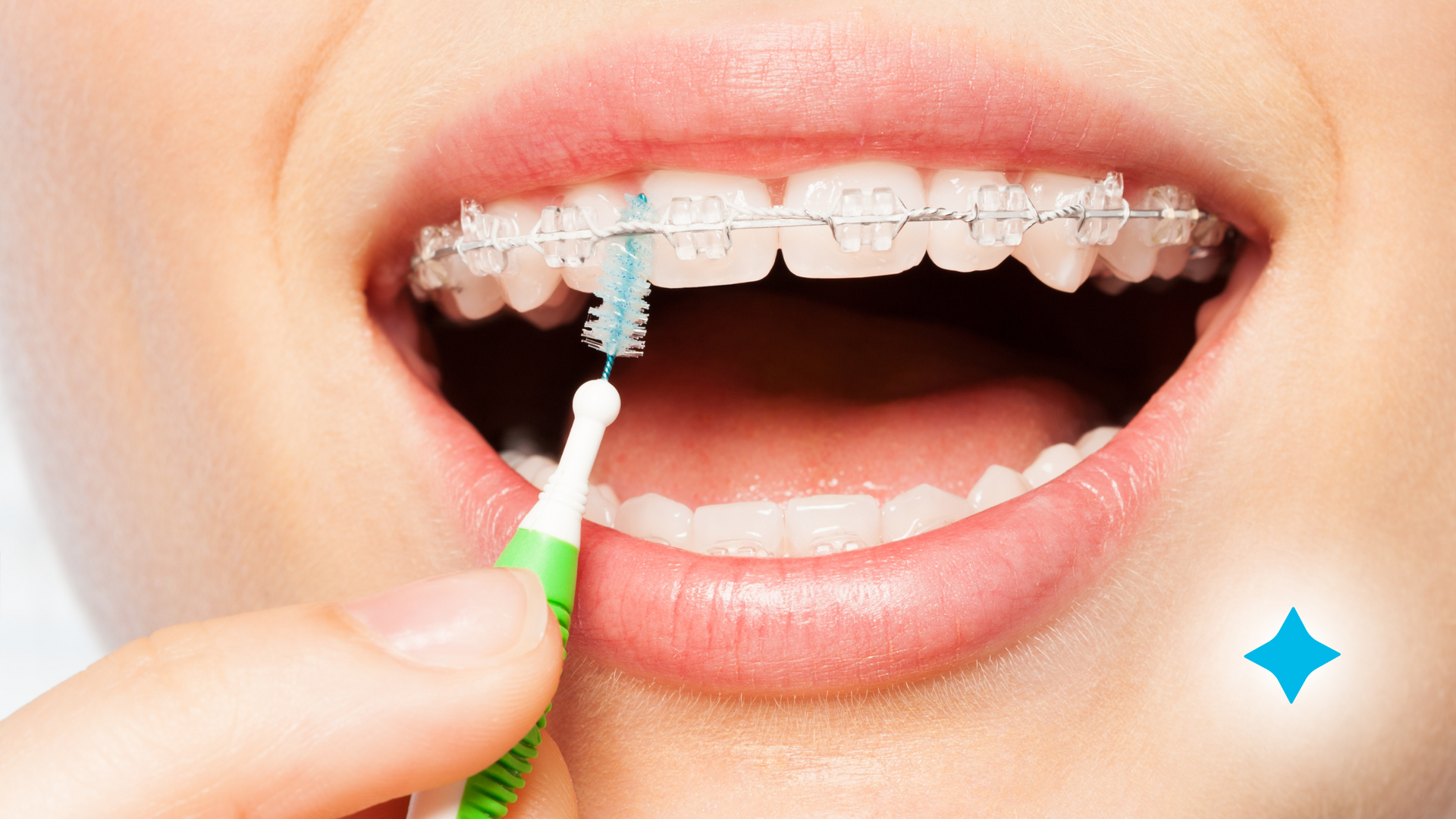
Maintaining a clean and healthy smile during your braces treatment does not have to be complicated. With the right brushing and flossing techniques, a healthy diet, and regular orthodontic checkups, you can keep your teeth and braces in top shape throughout the treatment process. At SmileRight, we are committed to helping our patients achieve beautiful, healthy smiles with personalized care and guidance every step of the way.
If you have any questions about maintaining your braces or need to schedule your next appointment, contact SmileRight today at (281) 699-0234 or request an appointment online.
Let’s work together to keep your smile clean, healthy, and on track to perfection!
